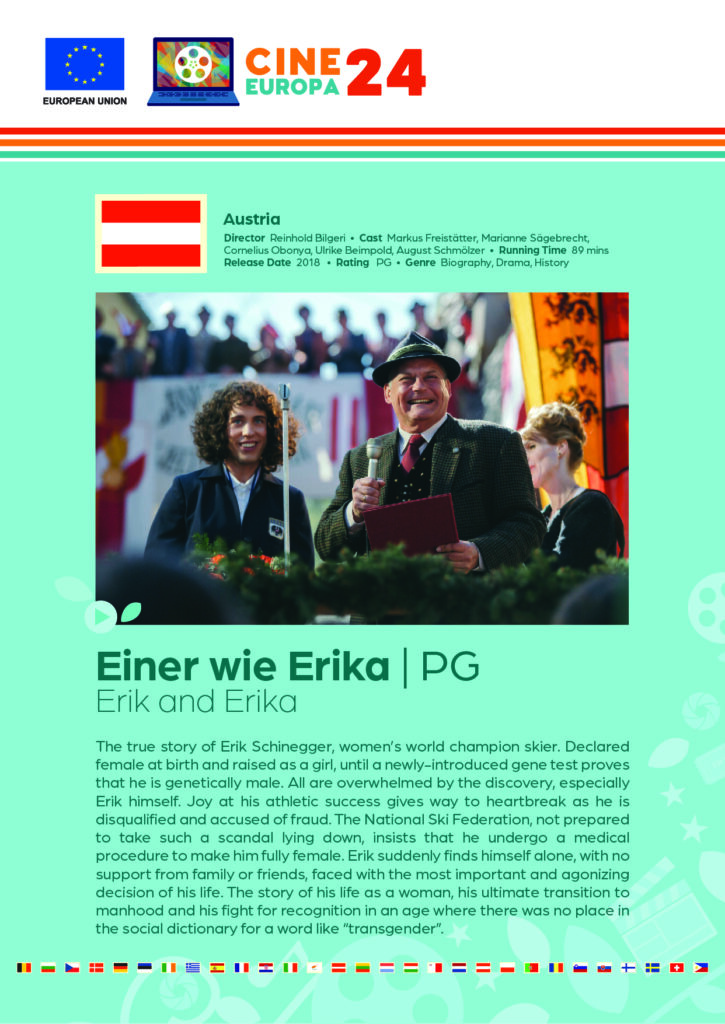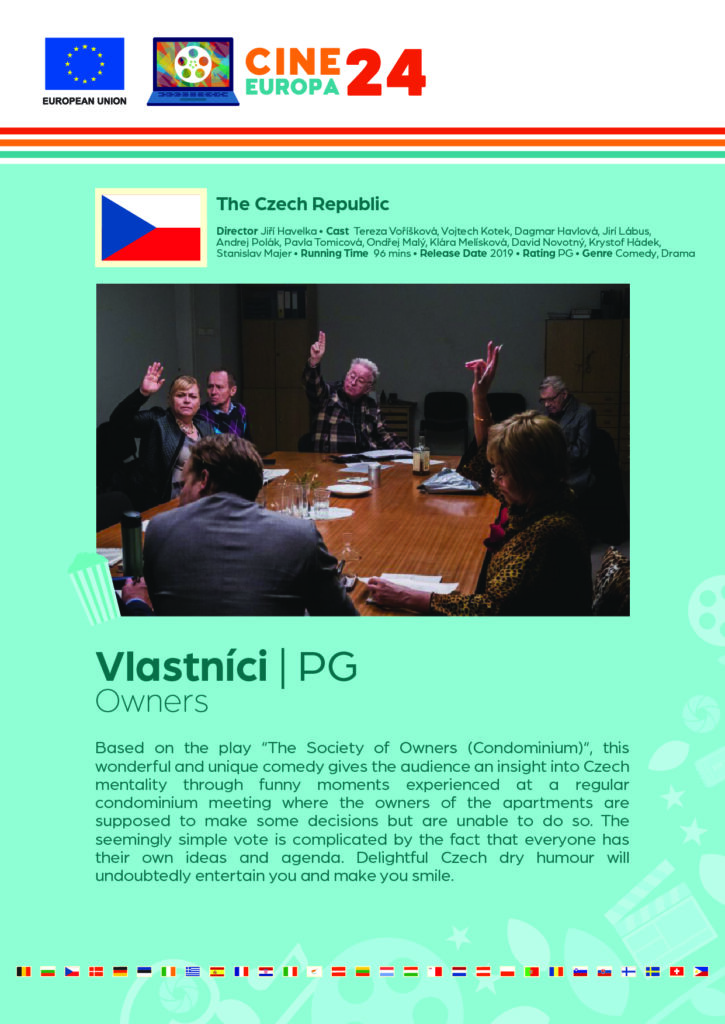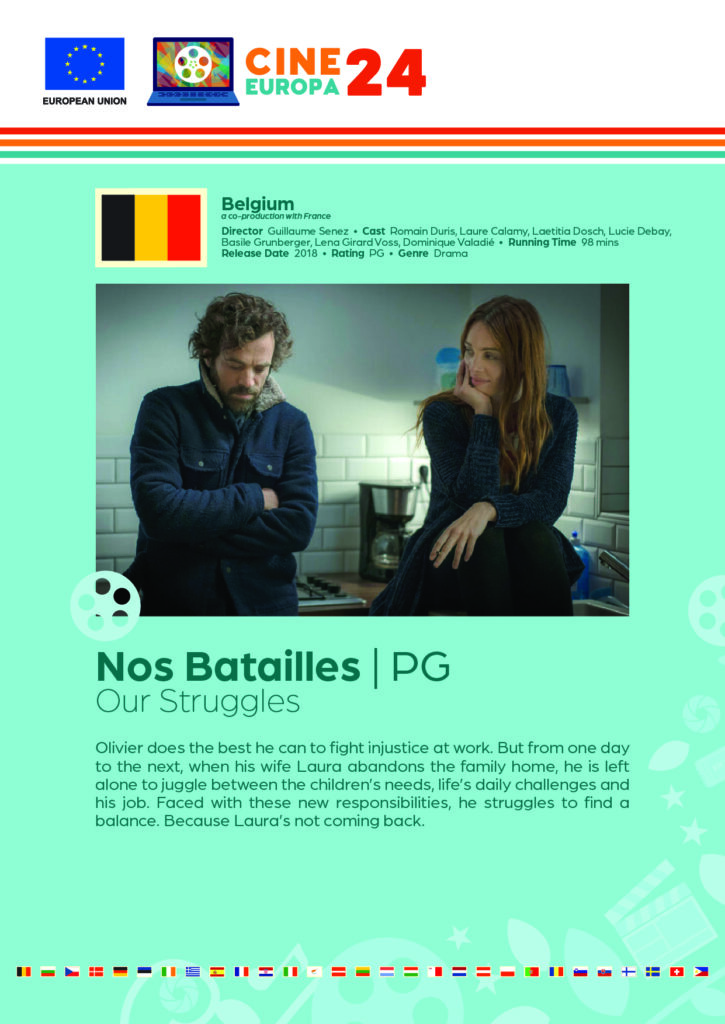Cine Europa 24: The Longest Running Philippine Film Festival!
Cine Europa is the longest running Philippine Film Festival. And it’s organizers are not about to let a Global Pandemic get in the way of that!
Of course, cinema’s are off limits to people in the Philippines, as many are under Community Quarantine orders. So what do you do, when you can screen your films in a cinema? You move online! And that’s exactly what Cine Europa has done for the second year in a row.
If you want to watch some quality European films, for free, visit our Events Calendar to see which movies are showing on what day and then visit Cine Europa to register your choices.
The Longest Running Philippine Film Festival:
MY RANGGO met with two members involved in the organization of this year’s Cine Europa 24 to find out more about the festival, and this years films.
MY RANGGO interviewed:
- Ana Isabel Sanchez Ruiz, who is Head of the Political, Press and Information Section, Delegation of the European Union to the Philippines. And
- Dalibor Mička, Deputy Head of Mission Embassy of the Czech Republic in Manila.
MR: What is the ultimate aim of Cine Europa?
Ana: The festival is about showcasing European culture and diversity to Philippine audiences; to forge relationships with the public and industries, such as commercial entities. It is also about building interest in European films. The film industry is very competitive and so we look to attract new audiences to European films.
Dalibor: Yes, I agree. It’s about bringing European culture to the Philippines. To show other people how Europe is and how diverse it is.
MR: How long have you been involved with Cine Europa?
Ana: I arrived in Manila recently, so it’s a new role for me.
Dalibor: I am a newbie in Manila too; I arrived in July. But I have been involved with Film Festivals since 2015
MR: What are the biggest challenges when deciding which films to include in the festival program?
Ana: There are several factors. One is about choosing new, quality, award winning films, so audiences can gain an appreciation for European cinema.
Another is about making sure we have diverse themes, social situations and films which appeal to different ages. One way to do this is to include films which are multi-nationally made.
The festival is sponsored by the European Union, so several of the films which are selected have themes that concord with European Union policies and values, for example social, environmental and Human Rights.
MR: The Austrian film, Erik and Erika, is a good example and topical; it covers both the Olympics and the issues of Transgender and transgender athletes. Both are big themes globally in 2021.

Dalibor: We have to understand the local audience and make sure we have the copyright to show the film. This means we have to communicate with all the relevant industries to get approval to show a film.
I joined my very first Film Festival in 2015, very late. I had to make a quick decision, without much knowledge of the local audience and chose a film which had just a name as the title. It was a surname, so the title wasn’t enticing to the audience.
The film was also “too Czech”, it was not relatable because the audience needed to know the context and histories which are referenced in the film. It was recommended to me by a friend, and it is actually a pretty great movie. But it was a bad choice for that audience.
MR: Has there been any challenges moving Cine Europa online because of the Pandemic? I see there were lots of people commenting on the Facebook page that they missed lining up with their friends, to watch the screenings.
Ana: Certainly, getting agreement to show the films online has been difficult in some cases, because of copyright and concerns about films being pirated.
In previous years, when showing the films in cinema’s, we would have more than 50,000 viewers. Last year there were only 6,000. That may be because people didn’t know the Festival was still active and had moved online instead.
Another factor could also be Online Fatigue. Everyone around the world has been constantly online, for almost every aspect of their lives, for more than one year. And watching a film online is not the same experience as going to cinema with friends and talking about it afterwards. For some it may be connectivity issues too.
Dalibor: I would certainly agree with Online Fatigue. And maybe also that the Festival Films have a set time for you to start watching each film. If you have been online all day already you may not want to have to watch a film at a specific time online too.
MR: Dalibor, the comedy Owners was chosen as the Czech submission to Cine Europa. Some film reviews have said that it doesn’t show the Czech people in the best light.
[Owners features apartment owners attending a meeting to discuss urgent repairs needed to the main building. Everyone knows about the repairs and problems, but no one can agree on how to fix them. Instead, they argue about the solutions put forward and with each other]

Dalibor: It’s not the best reflection of Czech people and 10-20% of the humor may be lost in the subtitle translation, or because they are idioms which Philippine audiences won’t know. But the film remains universal.
MR: I actually agree. I have not watched the film yet, but I have watched the trailer and I laughed so hard. I think we have all been in one of ‘those’ meetings!
Dalibor: I am happy to hear that. I recently bought an apartment so I can totally relate. And the film came out just after I bought my apartment and attended my first Owners meeting. In the Czech Republic these meetings are prescribed by law. They must be held 2 or 3 times a year.
That first meeting was incredibly non-cooperative; it was exactly like the film. Some owners just have their apartment as an investment, so they don’t really care about the building itself; “it has a front door, the door opens and shuts, what does it matter that it is ugly or has a few holes”.
What I love about the film is that it all takes place in one room. It is a real character study. It was originally a stage play by Jiří Havelka, who also directed the film.
MR: In recent years people seem very divisive, they are either for one thing or the other and there is no middle ground, no compromise. Is the building in Owners a metaphor for the current state of the World? With the homeowners not accepting that they are players or partly responsible, or that they need to reach agreement to move forward.
Dalibor: Actually, the original play is different from the film. So Jiří may have intentionally made the film even more divisive to reflect society at large. As owners you have to go to the meetings, even if you don’t want to, and you don’t like the people. You have to come to the table and talk, and maybe you have to compromise on your agreements.
MR: The Owners received 12 Czech Lion nominations, and won three of the awards, as well as two Czech Film Critics’ Awards. Do any of the original stage-play actors feature in the film too?
Dalibor: No. Originally it was a local play, it wasn’t a big production then. Now it tours and lots of small playhouses have put the play on too. But there are a lot of big Czech names in the film version.
Dagmar Havlová is a well-known stage and TV actress, and also our former First Lady. She plays Ms. Horváthová.
Jirí Lábus, plays her ex-husband in the film, and he is an absolute legend in the Czech Republic; he dubbed Marge Simpson in the Czech version of The Simpsons.
MR: Which film do you think will spotlight a culture which is the most similar to Filipino culture?
Ana: I think Belgium’s film (Nos Batailles) will feel very similar because of its themes, which are very relatable in a country where one or both parents may be working abroad so they can support their family.

Dalibor: I think all of the films will please the audience here and may take them by surprise. You see different things about a culture or society but also the similarities. Even for Europeans, watching films from other European countries, there are things that are surprising.
MR: How long does Cine Europa Film Festival typically last, when it is with Physical Screenings?
Ana: It usually runs for around 3 months, and visits 11 provinces in 3 major regions.
MR: Is there a chance for other Philippine locations to express an interest in welcoming Cine Europa Festival screenings in the future?
Ana: Yes, of course. The EU Delegation would be happy to receive expressions of interest in hosting Cine Europa when it goes back to physical screenings in the future.





GIPHY App Key not set. Please check settings